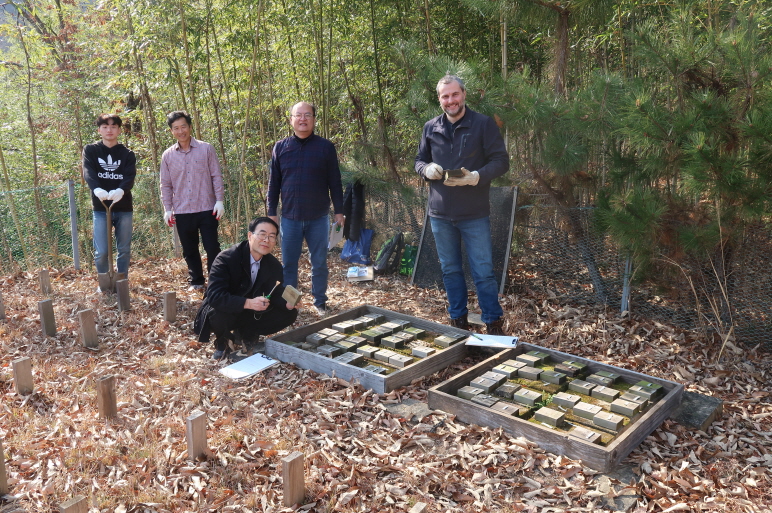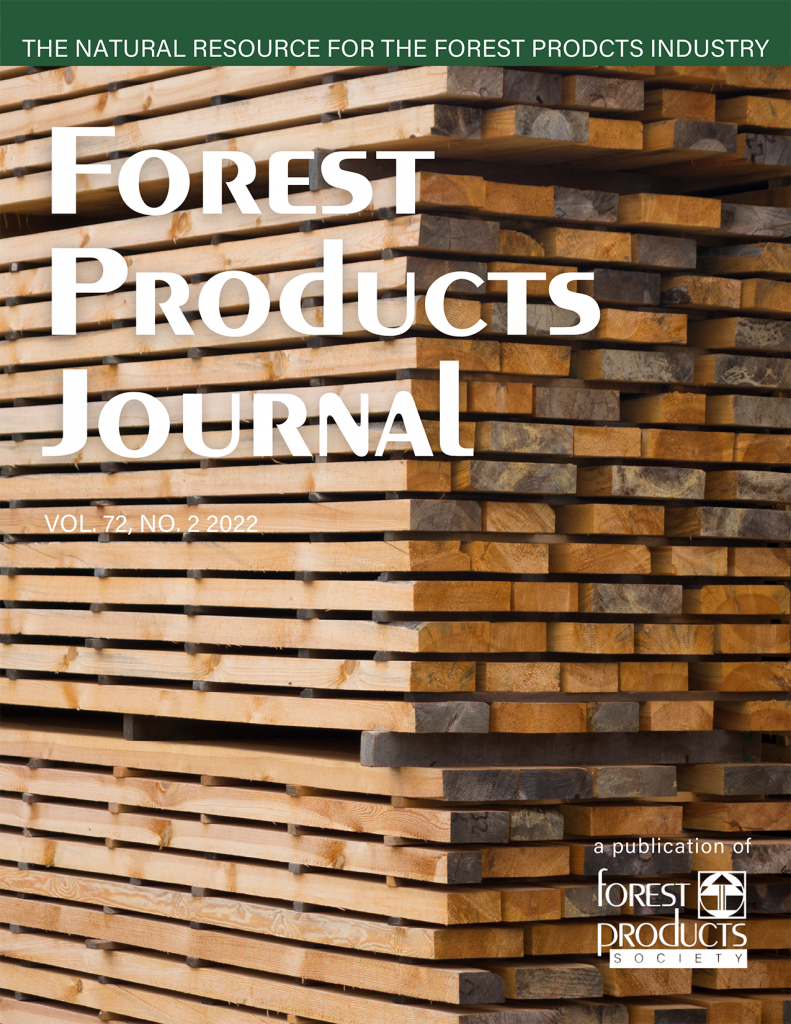Ten-year Field Test Result published to Facilitate the Re-introduction of Canadian Species to Korea’s Treated Wood Market

The results of a joint Canadian-Korean 10-year ground-contact field test indicate that the Canadian refractory softwood specimens of white spruce and western hemlock can reach expected long-term performance in Korean climate against decay and termite attacks.
Korean wood preservation standards require deep penetration, which precludes the use of many refractory species such as white spruce and western hemlock. However, preservative treatment of refractory species have been shown to be effective in other parts of the world. A ground-contact field test was therefore initiated a decade ago to evaluate the performance of western hemlock, a moderately refractory species, and white spruce, a highly refractory species, pressure treated to CSA 080 residential requirements with either copper azole or alkaline copper quaternary under Korean field conditions that included both decay and termite hazards. After 10 years of exposure in a ground proximity and field stake site in Jinju, Korea, the treated materials remained largely sound. The data suggests that material that does not meet current Korean penetration requirements could still provide effective protection against biodegradation under Korean conditions.
The research paper, jointly authored by Rod Stirling (FPInnovations), Jong Bum Ra (Gyeongsang National University), Jae-Yun Ryu (Korea Wood Preservation Association), Jieying Wang (FPInnovations) was published on Forest Products Journal (FPJ), a leading peer-reviewed technical journal on wood science and technology (https://meridian.allenpress.com/fpj).
As a result of the 10-year performance findings, Canada Wood Korea expects that Korean treatment provisions may be expanded to once again accept Canadian species and treatment standards.
The full report published in Forest Products Journal can be downloaded at:
Field Performance of Refractory Softwoods Treated with CA or ACQ after 10 Years of Exposure in Korea and Canada | Forest Products Journal (allenpress.com)
Acknowledgments
Project funding was provided by Natural Resources Canada, the Canada Wood Group and British Columbia Forestry Innovation Investment. This experiment was designed by Paul Morris with technical assistance of Dave Minchin, Janet Ingram, and Daniel Wong from FPInnovations and Paul Newman, Tai Jeong, and Tae Hwang from Canada Wood Group. The Jinju test site was generously provided and maintained by Mr. Sungwhan Kim. Petawawa test site access was provided by Natural Resources Canada (Canadian Forest Service).



